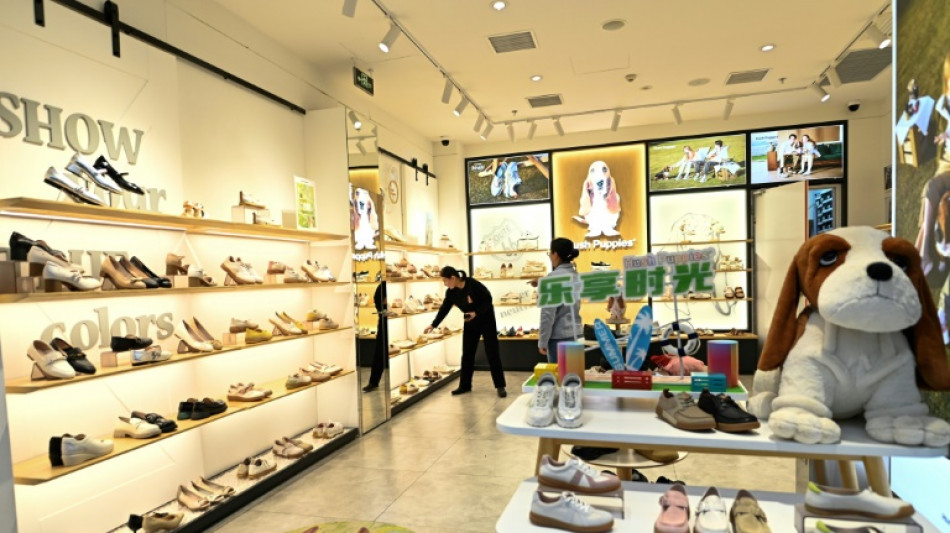
-
 Australian guard Daniels of Hawks named NBA's most improved
Australian guard Daniels of Hawks named NBA's most improved
-
Mexico City to host F1 races until 2028

-
 Morales vows no surrender in bid to reclaim Bolivian presidency
Morales vows no surrender in bid to reclaim Bolivian presidency
-
Ukraine, US sign minerals deal, tying Trump to Kyiv

-
 Phenomenons like Yamal born every 50 years: Inter's Inzaghi
Phenomenons like Yamal born every 50 years: Inter's Inzaghi
-
Ukraine, US say minerals deal ready as Kyiv hails sharing

-
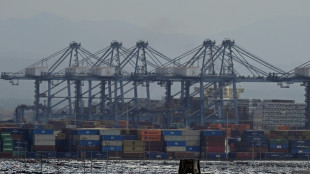 Global stocks mostly rise following mixed economic data
Global stocks mostly rise following mixed economic data
-
O'Sullivan says he must play better to win eighth snooker world title after seeing off Si Jiahui

-
 Sabalenka eases past Kostyuk into Madrid Open semis
Sabalenka eases past Kostyuk into Madrid Open semis
-
Netflix's 'The Eternaut' echoes fight against tyranny: actor Ricardo Darin

-
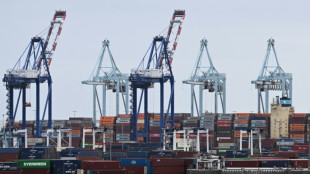 US economy unexpectedly shrinks, Trump blames Biden
US economy unexpectedly shrinks, Trump blames Biden
-
Barca fight back against Inter in sensational semi-final draw

-
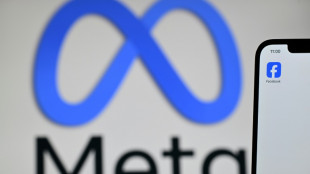 Meta quarterly profit climbs despite big cloud spending
Meta quarterly profit climbs despite big cloud spending
-
US Supreme Court weighs public funding of religious charter school

-
 Climate change made fire conditions twice as likely in South Korea blazes: study
Climate change made fire conditions twice as likely in South Korea blazes: study
-
Amorim says not even Europa League glory can save Man Utd's season

-
 Syria reports Israeli strikes as clashes with Druze spread
Syria reports Israeli strikes as clashes with Druze spread
-
Ukraine, US say minerals deal ready as suspense lingers

-
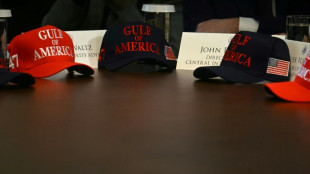 Everything is fine: Trump's cabinet shrugs off shrinking economy
Everything is fine: Trump's cabinet shrugs off shrinking economy
-
Chelsea boss Maresca adamant money no guarantee of success

-
 Wood warns England cricketers against 'dumb' public comments
Wood warns England cricketers against 'dumb' public comments
-
US economy shrinks, Trump blames Biden
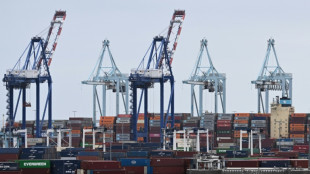
-
 Caterpillar so far not hiking prices to offset tariff hit
Caterpillar so far not hiking prices to offset tariff hit
-
Japan's Kawasaki down Ronaldo's Al Nassr to reach Asian Champions League final

-
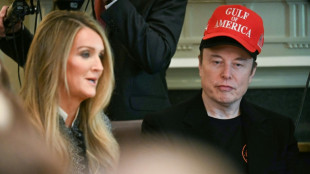 Trump praises Musk as chief disruptor eyes exit
Trump praises Musk as chief disruptor eyes exit
-
Chahal hat-trick helps Punjab eliminate Chennai from IPL playoff race

-
 Pope Francis saw clergy's lack of humility as a 'cancer': author
Pope Francis saw clergy's lack of humility as a 'cancer': author
-
Weinstein accuser recounts alleged rape at assault retrial in NY

-
 Piastri heads into Miami GP as the man to beat
Piastri heads into Miami GP as the man to beat
-
US economy unexpectedly shrinks in first quarter, Trump blames Biden
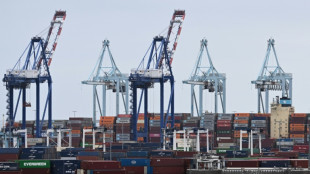
-
 Maxwell likely to miss rest of IPL with 'fractured finger'
Maxwell likely to miss rest of IPL with 'fractured finger'
-
Syria reports Israeli strikes after warning over Druze as sectarian clashes spread

-
 Despite war's end, Afghanistan remains deep in crisis: UN relief chief
Despite war's end, Afghanistan remains deep in crisis: UN relief chief
-
NFL fines Falcons and assistant coach over Sanders prank call

-
 British teen Brennan takes stage 1 of Tour de Romandie
British teen Brennan takes stage 1 of Tour de Romandie
-
Swedish reporter gets suspended term over Erdogan insult

-
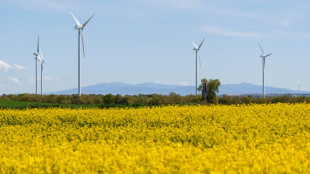 Renewable energy in the dock in Spain after blackout
Renewable energy in the dock in Spain after blackout
-
South Africa sets up inquiry into slow apartheid justice

-
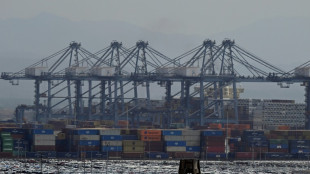 Stocks retreat as US GDP slumps rattles confidence
Stocks retreat as US GDP slumps rattles confidence
-
Migrants' dreams buried under rubble after deadly strike on Yemen centre

-
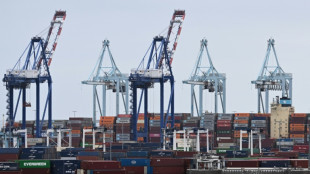 Trump blames Biden's record after US economy shrinks
Trump blames Biden's record after US economy shrinks
-
UK scientists fear insect loss as car bug splats fall

-
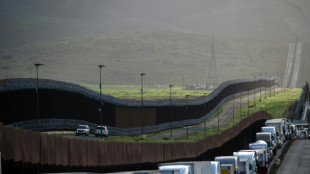 Mexico avoids recession despite tariff uncertainty
Mexico avoids recession despite tariff uncertainty
-
Rwandan awarded for saving grey crowned cranes

-
 Spurs have 'unbelievable opportunity' for European glory: Postecoglou
Spurs have 'unbelievable opportunity' for European glory: Postecoglou
-
Microsoft president urges fast 'resolution' of transatlantic trade tensions
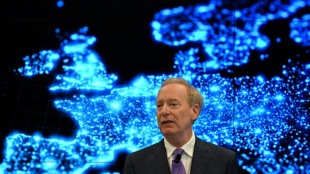
-
 Poppies flourish at Tower of London for WWII anniversary
Poppies flourish at Tower of London for WWII anniversary
-
US economy unexpectedly shrinks on import surge before Trump tariffs
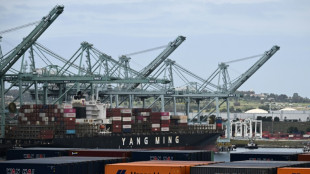
-
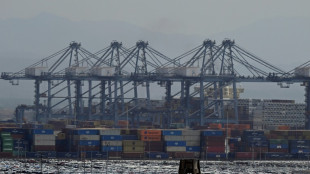 Stocks drop after US economy contracts amid tariffs turmoil
Stocks drop after US economy contracts amid tariffs turmoil
-
US economy unexpectedly shrinks on import surge ahead of Trump tariffs
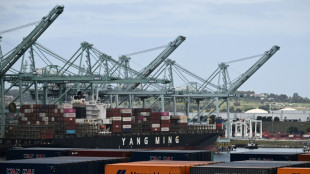

China seeks to 'tariff-proof' economy as trade war with US deepens
China is trying to tariff-proof its economy by boosting consumption and investing in key industries, but analysts say it remains critically vulnerable to the economic storm triggered by Donald Trump's 104 percent levies on its goods.
Beijing has vowed to "fight to the end" against Trump's aggressive trade policy, with number two leader Li Qiang saying authorities were "fully confident" in the resilience of the Chinese economy.
But even before the tariffs hit, weakness in the post-Covid domestic market, rising unemployment and a long-running property crisis had all dampened consumption.
"The Chinese economy has been significantly weakened since Trump's first term and can't really withstand the impact of sustained high tariffs," said Henry Gao, an expert on the Chinese economy and international trade law.
Overseas shipments had represented a rare bright spot last year, with the United States the top single country buyer of Chinese goods.
US figures put Chinese exports to the United States at around $440 billion in 2024, almost three times the $145 billion worth of imports.
Machinery and electronics -- as well as textiles, footwear, furniture and toys -- make up a majority of the goods sent, and a supply glut could squeeze already crowded domestic consumer markets.
Although China's domestic market is stronger now than in Trump's previous term, there would inevitably be pain ahead, said Tang Yao from Peking University's Guanghua School of Management.
"Certain products are specifically designed for American or European markets, so efforts to redirect them to domestic consumers will have only a limited effect," he said.
- 'Strategic opportunity' -
However, a weekend editorial in the Communist Party-backed People's Daily described the tariffs as a "strategic opportunity" for China to cement consumption as the main driver of economic growth.
We must "turn pressure into motivation", it read.
Beijing has been seeking to "recast structural external pressure as a catalyst for long-intended reforms", said Lizzi Lee from the Asia Society Policy Institute's Center for China Analysis.
Authorities are "projecting confidence", she said.
China's quick and coordinated response to tariffs reflect lessons learned from Trump's first term, she added.
For example, in addition to readying reciprocal tariffs on US goods set to come into effect Thursday, Beijing's commerce ministry the same day announced export controls on seven rare earth elements -- including ones used in magnetic imaging and consumer electronics.
Beijing's response to any further escalation may no longer be confined to tit-for-tat levies, as China is "refining its retaliatory approach", Lee said.
Since Trump's first term, China has diversified and fortified relationships with countries in Europe, Africa, Southeast Asia and Latin America, as well as South Korea and Japan.
Beijing could also expand government support for the private sector as entrepreneurs fall back into President Xi Jinping's good graces, added ANZ's Raymond Yeung.
China's leaders have been trying to promote domestic self-reliance in technology for some time, offering explicit support and reinforcing supply chains in key areas like AI and chips.
- 'No real protection' -
While this time round Beijing has more experience with Trump, it "doesn't mean the Chinese economy can easily shake off the effects of soaring tariffs", said Frederic Neumann, chief Asia economist at HSBC.
Authorities will be looking to quickly offset falling US demand for Chinese goods, he said.
That could look like trade-in schemes or more consumer subsidies that make it easier for Chinese shoppers to buy common household items, from water purifiers to electric vehicles.
"By creating demand and trade opportunities for China's partners in Asia and Europe, the country could help shore up what's left of the liberal global trading order," Neumann said.
But whether or not Beijing can do that is yet to be seen.
The government has "been very reluctant to introduce real consumption stimulus, which is why there's such low confidence in any so-called consumption-boosting measures", Gao said.
"I don't think China has any real protection against a trade war," he added.
Success also goes beyond words, and ultimately hinges on Beijing's ability to deliver the long-awaited consumption boost, HSBC's Neumann warned.
"This is China's moment to seize economic leadership of the world," he said.
"But that leadership will only come about if domestic demand rebounds and fills the void left by an absent US."
R.Flueckiger--VB
